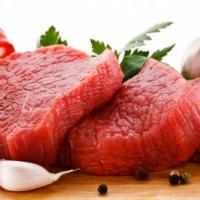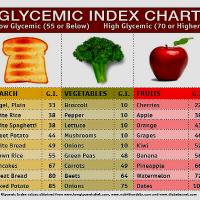Low-gi Diet Versus Low-carb Diet
The low-glycemic index (low GI) diet and the low-carb diet are two popular diets in use today by those who want to lose weight.
A low-carb diet severely restricts the number of carbohydrates you eat in total and does not much always distinguish between unrefined versus refined carbohydrates. It concentrates on including protein, fats and low carbohydrate vegetables, such as greens.
By contrast, a low glycemic index diet encourages the inclusion of all food groups and does not severely limit carbohydrates, but discourages the use of foods that register high on the glycemic index, meaning simple sugars that break down in the body quickly and cause spikes in blood sugar. It excludes foods such as white flour, white rice, sugar and foods like white potatoes in excess. However, it encourages the use of slow burning, complex carbohydrates such as brown rice and bread made from whole-wheat flour, foods that break down slowly and cause a steady, even release of glucose into the bloodstream, thus avoiding spikes in blood sugar and this way aid in weight loss.
Although the low-carb diet, among the most popular of which is the Atkins diet, will make you lose weight quickly, much of this weight loss will initially be water. Consuming high amounts of animal protein can strain the kidneys, because excess animal protein must be excreted through the kidneys - it cannot be stored. This also can encourage bone loss that, in severe cases, can lead to osteoporosis, because, when excess animal protein is excreted through the kidneys, it must bind with calcium to do so. Finally, having excess animal protein in the diet can also lead to gout and arthritis. Diets high in saturated fat can also lead to prostate and colon cancers.
Of course, so severely restricting the carbohydrate food group, which includes not only grains and cereals but fruits and vegetables, can result in its followers not getting enough important nutrients that can only be found in plant foods, especially complex carbohydrates. It is also not to be used on children, since complex carbohydrates provide an important source of energy for neurological and overall growth. This is also the argument against its long-term use in adults, although adults can better withstand short-term exclusion of carbohydrates because they do not have the energy needs children do for physical and neurological growth.
Finally, a major drawback to low carbohydrate diets is that fiber is so severely restricted with the exclusion of complex carbohydrates that, in order to avoid constipation, users must take a fiber supplement. However, if users were to consume complex carbohydrates in reasonable amounts instead, not only would they get fiber from them, but they would also get important nutrients lacking in low-carb diets.
Restricting vegetables and fruit can be linked to a higher risk of esophageal, oral and stomach cancers, as well as the aforementioned colon cancer. Incidentally, the low-carb, high animal protein diet is also very hard on the environment, since having animals consume vegetable products to produce meat rather than having humans directly consume vegetable products themselves is a very inefficient way to produce food and produces a lot of waste via animal excretion that pollutes the environment and wastes a lot of water as well.
Therefore, instead of following a strict low-carb diet, most experts advise following a diet that is low in simple carbohydrates such as refined flowers and sugars, but includes complex carbohydrates, such as wheat flour, brown rice, fruits and vegetables, plus a moderate amount of good fats such as fish oil and olive oil.
Saturated fat, such as that from red meat, should be limited, and trans-fats should be avoided altogether. Protein sources low in saturated fat, such as beans and legumes, fish, chicken and turkey, should be consumed in moderation. Drinking enough water and getting plenty of exercise are also important for any weight loss program.
Related Articles
-
Trimspa Diet Reviews
Trimspa diet reviews have been coming in fast and furio
-
Low Calorie Fat Diets
When you are on a low calorie diet, you will want to find recipes for
-
Health Risks of Low Carb diets
Low-carbohydrate diets is nutritional programs that advocat
-
Low Carb Dinner Recipe Ideas
The best way to lose weight is to make a lifestyle change. You need to
-
Adding Avacados
Aft
-
Simple Tips For Easy Weight Loss
Current statistics reveal that 75% of Americans are overweight and 40
- DON'T MISS
- Getting Long Term Is A Result Of Low Carb Diets
- Guidelines For Picking Good Nutrition
- 25 Tips For Restaurant Dieting
- Low-fat Or Low-carb Diet? Which Is Better?
- Low Carb Cake
- Carbs And Weight Loss, Important Facts You Should Know
- Guidelines For Selecting Good Nutrition
- Will Carbs Ruin My Diet? The Low Carb No Carb Diet Myth
- Muscle Enhancement - Low Carb Low Glycemic Whey Protein Supplement
- Asparagus Frittata




